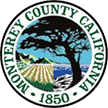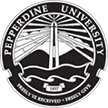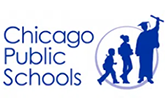Cal Interpreting & Translations (CIT) offers Dutch interpreters and translators with legal, medical and specialty experience, including criminal and civil matters, employee meetings, engineering, patent cases, labor disputes, immigration and more.
Although based in Los Angeles, CIT offers comprehensive Dutch language services including interpretation, translation and transcription, 24 hours a day, 7 days a week, worldwide. Our interpreters and translators are native speakers who have been screened, certified, have provided credentials, field tested, and kept up to date with developments in both English and the Dutch language through means such as lectures, conferences, and travel. CIT’s Dutch language interpreters and translators possess in depth knowledge of the Dutch language, as well as of the culture and history of the Dutch people, allowing them to provide informed and complete interpretation and translation.
The Dutch language is an Indo-European language spoken by approximately 23 million people. Of this amount, 16.4 million people speak Dutch in Holland and in the northern part of Belgium, including Brussels. Dutch is also spoken in Aruba, Brazil, Canada, Curacao, Germany, Saint Maarten, South Africa, Suriname and the US.
The Dutch language got its name from a German word, theodisk, which refers to the language spoken by the people as opposed to Latin. Eventually, theodisk became Deutsch in modern German. In Dutch, the world is split into two words: duits, which means German and diets, which means Dutch.
Before Holland became an independent country in 1550, the word Dutch simply meant and Germanic language. Those who came from German settlers in Pennsylvania are known as the Pennsylvania Dutch.
Across multiple countries, the Dutch language holds a different status. In the Netherlands, Dutch is the standard language spoken by over 16 million people. It is used in education, media, politics and publications. In Belgium, Dutch is used as a national language, along with French and German. Over 6 million people speak Dutch in Belgium. In France, there are approximately 80,000 speakers of the language, which is known as Vlaams or Flemish. It has no official status as a language in France. In Aruba, it is the de facto language, spoken by just over 5,200 people. This number is on a steady decline. Dutch is also the national language of Bonaire, Saint Eustatius, Saba and Sint Maarten. It is the de facto language of Suriname and Curacao.
There are several dialects of the Dutch language, especially considering how many countries speak Dutch. In the Netherlands, there are four dialects: Low German (spoken in Groningen, Drenthe and Overijssel), Zuid-Gelders(spoken in the North Rhine-Westphalia), Brabantian and Linburgish. In Belgium,
There are several dialects of the Dutch language, especially considering how many countries speak Dutch. In the Netherlands, there are four dialects: Low German (spoken in Groningen, Drenthe and Overijssel), Zuid-Gelders(spoken in the North Rhine-Westphalia), Brabantian and Linburgish. In Belgium, Flemish is categorized by the French loanwords in the language. Some dialects in Belgium include West Flemish (spoken in Zeeland and around Dunkirk, located on the border), East Flemish, Brabantian and Linburgish.
There are 16 vowel phonemes in the Dutch language, with 5 being short and 7 long. There are 3 diphthongs as well. There are several consonants as well, such as bilabial, labio-dental, alveolar, post-alveolar, palatal, velar, uvular and glottal vowels with fricative, nasal, lateral and trill stops. The stress on Dutch words is usually on the first syllable.
Grammar in the Dutch language is far simpler than that of German and follows that of English grammar, as it has no noun or adjective declensions but still possesses pronominal inflections. There are two genders in Dutch words (common and neuter), two numbers (singular and plural), two definite articles and one indefinite article. In Dutch, verbs follow a very simple outline in that there are only two simple tenses (present and past). Verbs are conjugated in the future using an auxiliary verb (ex: I will go to work). There are three moods (indicative, imperative and conditional) and three voices (active, middle and passive). The word order in Dutch follows the Subject-Verb-Object framework and the vocabulary in Dutch is of Germanic origin.


No matter what your needs may be, we can and are ready to assist you now. We have translators and interpreters standing by 24/7.

CIT's interpreter is such a rockstar, and it’s so great to have him as a lead interpreter for our Board meetings. About Our Interpreters 
Thank you for always being able to handle emergency interpreting assignments with ease. About Urgent Requests 
Thank you for always being able to handle emergency interpreting assignments with ease. About Urgent Requests 
Your translation rates are more competitive than other language service providers I used in the past. About Pricing 

Professionalism matters at CIT. We respond to request inside 24 hours.







